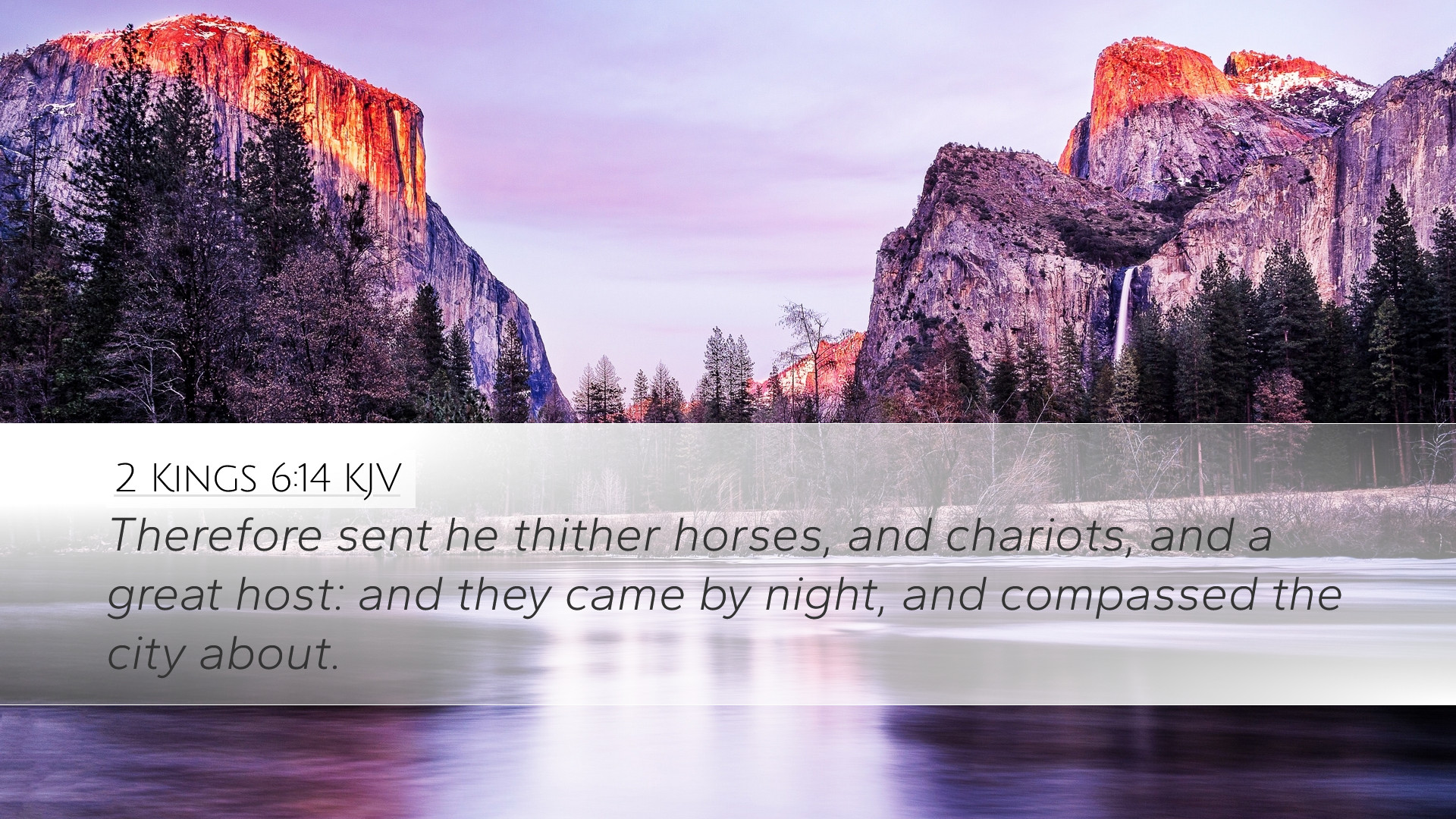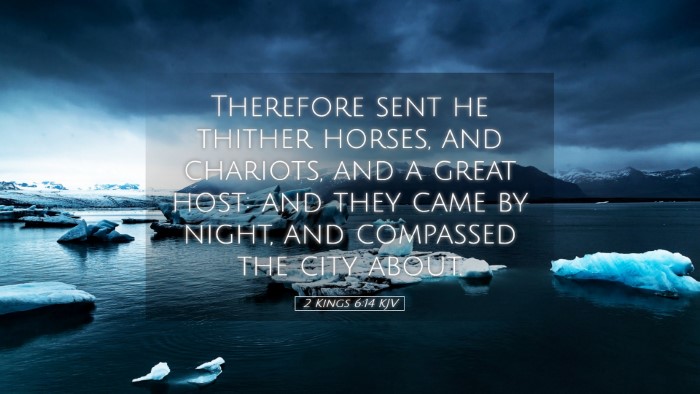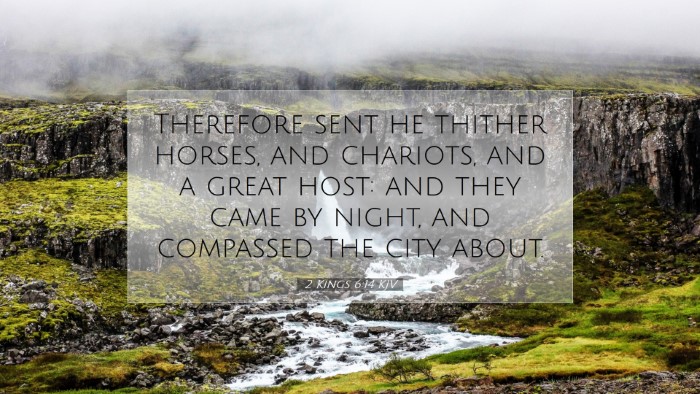Commentary on 2 Kings 6:14
Verse Reference: 2 Kings 6:14 - "Therefore sent he thither horses, and chariots, and a great host: and they came by night, and compassed the city about."
Introduction
This verse occurs within the narrative of Elisha’s ministry, highlighting both the alarm of the king of Syria and the prophetic insight of Elisha. It presents theological themes of divine protection, the power of God against human forces, and the significance of spiritual perception.
Contextual Overview
The preceding verses reveal that Elisha, the prophet of God, had been revealing the plans of the king of Syria to the king of Israel. As a result, the Syrian king sent troops to capture Elisha, indicating that spiritual insight can threaten earthly power. This sets the stage for the unfolding of God's miraculous provision and protection.
Historical Background
The geopolitical situation during this period was tumultuous, with Israel facing threats from bordering nations. Elisha’s prophetic role not only provided spiritual guidance but also influenced military strategies. The mention of a 'great host' and 'chariots' reflects the ancient Near Eastern context where warfare was a direct manifestation of divine favor or disfavor.
Thematic Insights
1. The Nature of Fear
In this verse, the response of the Syrian king reflects a common human reaction to threats. Fear often leads to overreactions, and the mobilization of an entire host to capture one man illustrates the lengths to which human power will go to eliminate perceived threats. Albert Barnes observes that this act mirrors the misconceptions of worldly leaders in underestimating the power of God.
2. God’s Protection
The protectorate role of God in the life of Elisha is significant. Matthew Henry notes that despite the overwhelming odds, God’s plans prevail. This serves as reassurance for believers regarding their position before God’s unfailing defense. It illustrates the theme of divine provision in times of peril.
3. Spiritual Perception vs. Physical Sight
Elisha’s awareness of the situation through divine revelation contrasts sharply with the worldly perspective of the Syrian king. Adam Clarke emphasizes that spiritual discernment allows one to see beyond immediate circumstances. In the following verses, Elisha’s servant is given this insight, symbolizing the broader call to faith over fear.
Application for Believers
This narrative invites believers to reflect on their responses to threats and challenges. When faced with overwhelming odds, consider the following:
- Trust in God's Sovereignty: Like Elisha, believers are encouraged to trust that God is in control, regardless of the chaotic circumstances that surround them.
- Seek Spiritual Insight: Engage in prayer and meditation to cultivate an understanding that transcends human wisdom.
- Maintain Peace in Adversity: The peace of God can prevail even in hostile environments, enabling believers to act with wisdom and courage.
Theological Reflections
The presence of "horses and chariots" serves as a metaphor for worldly power and human reliance on military might. However, the narrative unfolds to demonstrate that true strength lies in spiritual awareness and dependence on God. This establishes a significant theological principle that challenges contemporary Christians to reassess where they place their trust. Both Henry and Barnes reflect on this juxtaposition throughout their commentaries, encouraging believers to prioritize spiritual over material resources.
Concluding Thoughts
The richness of 2 Kings 6:14 lies not only in its historical account but also in its spiritual implications. The narrative encourages pastors, students, and scholars alike to recognize the enduring truth that while the world may array its might against them, the presence of God’s protection and the call to spiritual perception remain steadfast. The unfolding events serve as a reminder of God’s supremacy and invite a posture of reliance upon His guidance.


